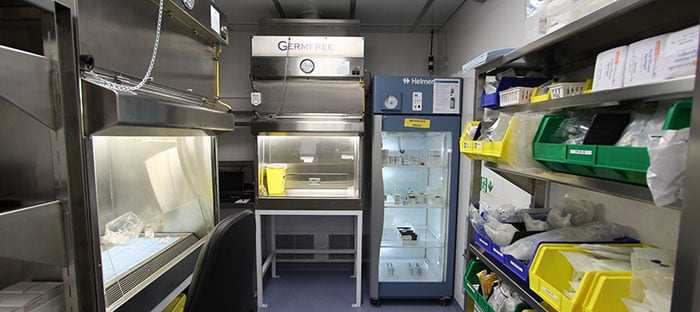
Facilities are under pressure to comply with The United States Pharmacopeia (USP) Chapter <800> Hazardous Drugs: Handling in Healthcare Settings. All facilities must be in compliance by December 1st, 2019. This chapter has caused a tremendous amount of confusion regarding refrigeration equipment, placement of refrigerators for HD storage, and so on.
To provide expert guidance and practical advice to pharmacists, technicians and other health professionals involved in the compounding and handling of hazardous drugs, ASHP has published the Chapter <800> Answer Book.
The Answer Book is a comprehensive guide to every area of compounding, administering, storing, and disposing of hazardous drugs. The Answer Book is written in plain language in a question-and-answer format by Patricia C. Kienle, RPh, MPA, FASHP.
Organized in a format like Chapter <800>, each section begins with an overview of the key issues and requirements of that section, followed by questions and answers covering the specifics of compliance.
The following questions and answers are related specifically to the storage of refrigerated HDs as well as the placement of the HD refrigerator.
Where do I store HDs that require refrigeration?
Refrigerated antineoplastic agents must be stored in a dedicated refrigerator in your negative pressure storage area. If you have identified alternative containment strategies in your Assessment of Risk for dosage forms of HDs that aren’t antineoplastics, you may be able to store those agents in your refrigerator with non-hazardous stock.
What are my options for storing refrigerated HDs? Does the refrigerator have to be a negative pressure refrigerator?
For those drugs that are APIs and those that are antineoplastics (unless they are final dosage forms that need to be only counted or packaged), you must keep them in a refrigerator dedicated to HD (only) storage in your negative pressure room.
See Section 14, Design of Compounding Facilities, for more information about refrigerator placement.
If you have performed an Assessment of Risk and determined alternative containment strategies and/or work practices for HDs that are not APIs or not antineoplastic, you can store those non-antineoplastic and reproductive HDs with your other drugs. In most cases, it may mean that you identify them as hazards but store them in the same refrigerator you use for storage of non-HDs.
Does the refrigerator have to be a negative pressure refrigerator?
No, but the refrigerator needs to be in a negative pressure room.
I only have one pharmacy refrigerator. Can I designate one shelf to store antineoplastics?
If you will be manipulating those antineoplastics (e.g., for compounding), then no; you need a separate refrigerator for those agents, and it must be in your negative pressure room. If you only have antineoplastics that you will only count or package, you may store them in your regular pharmacy refrigerator if you have identified alternative containment strategies for those specific dosage forms in your Assessment of Risk.
What are the recommendations regarding refrigerator placement for refrigerated antineoplastic HDs? USP <797> allows placement in a negative pressure buffer room; however <800> recommendations indicate exhaust placement near the compressor and behind the unit.
These are not different requirements; <800> provides more guidance in placement of the refrigerator. Your refrigerator—or any device that could produce particles—should be placed near an exhaust to allow the particles generated to be swept out of the room.
Answers to around 600 more of these tricky USP <800> questions are available in the guide. Get compliance details for all aspects of hazardous drug handling–all in one convenient, easy-to-use guide by downloading it today.
All information in this post is derived from the Chapter <800> Answer Book, written by Patricia C. Kienle and available through ASHP.




